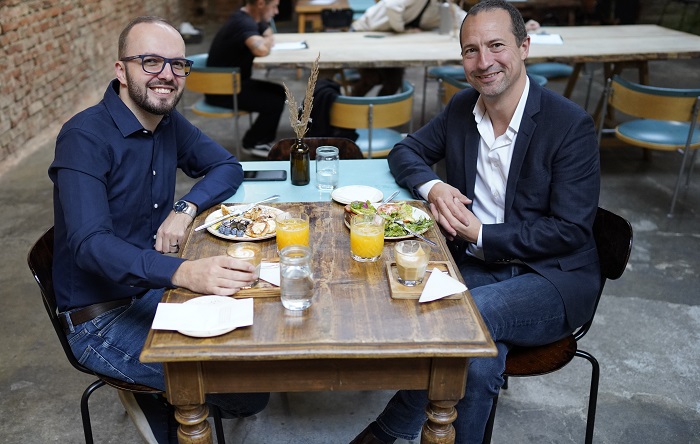The international speaker at this year’s Seznam Forum conference is Jesper Laursen, founder of the Native Advertising Institute and CEO of Brand Movers. In an interview with Ondřej Sitta, head of the local Seznam Brand Studio, they discussed the current European native advertising landscape.
Ondřej Sitta: You have experience in native advertising and marketing from many countries. What differences in quality can you see in individual countries?
Jesper Laursen: I am impressed by some of the Eastern European countries. Croatia regularly succeeds in the Native Advertising Awards with its native campaigns. Your Seznam Brand Studio entered the scene splendidly this year when you became the best large native advertising studio in the world. But on the other hand, I have to confess that I am often disappointed by the work being done in the United States. The native articles there are often wonderful pieces full of interesting points and journalistic skill, but from a strategic perspective they are often quite weak. They are often just bits of nice content. But for example Croatia or you produce complex campaigns across formats and channels. So overall, I would say that Eastern European countries are at least as sophisticated as Western countries when it comes to native advertising. To be precise, the Czech Republic and Croatia produce cool campaigns and so do Sweden and Great Britain.
Ondřej Sitta: I have always been amazed by the strength of Scandinavia. Even relatively small Norway is developing native advertising intensively and is very progressive..
Jesper Laursen: Yes, and then you have countries like Spain, Italy or France that seem to do almost nothing in this area. But it is not about the difference between a big country and a small country, because, for example, Great Britain is big.
Ondřej Sitta: So is there any common element of success at all?
Jesper Laursen: Perhaps the common factor is the existence of a dominant media house in the country that can do native advertising. Such as Media24 in South Africa, 24sata in Croatia or the Czech Republic. Others can draw on this. These media houses also have more opportunities because they have many channels and are better placed in terms of business. When you think about it, The New York Times has only The New York Times in fact. Sure, they have bought some companies, but they still do not have as wide a range of options as you have.
Ondřej Sitta: It is true that diversity and the search for new opportunities are in our DNA.
Jesper Laursen: And it also depends on the top management and whether they want to invest in this area. For example, at The New York Times, they are making up for it by investing heavily. Even the Swedish media group Bonnier Group has invested a lot. They had a team of at least 60 people in Sweden alone. And then you have media houses where native advertising is handled by one or two people. If this is the case, it is hard to expect anything fantastic.
Ondřej Sitta: Sometimes when I look at foreign campaigns, especially American ones, I can see a tendency to build native ads on values. Within the campaign, brands communicate, “This is who we are and these are our values that we cherish and make the world a better place.” But this strategy tends to fail in general in the Czech Republic.
Jesper Laursen: Why do you think so?
Ondřej Sitta: One of the reasons may be that people easily see that such a declaration often simply does not correspond to reality.
Jesper Laursen: You are right. And there is also the other part of the equation - the fact that a large portion of the people who do native advertising are former journalists. They do not have a very sophisticated knowledge of marketing. All is about having a good story. And values are often associated with a good story, even if it does not quite match reality. But it is no longer about a purchase action or brand building in a marketing sense.
Ondřej Sitta: The result is just those nice articles you mentioned.
Jesper Laursen: Exactly. Brand studios sometimes have a lot of journalists but not enough marketers. I was doing a workshop in South Africa focused on creating the right business model and content marketing. I was challenging the participants’ offering and their value added for clients a bit and they kept saying they had great storytelling. And I tell them, that is great, but it does not necessarily have to mean anything for business. Clients want to sell their products, so how do you help with that? It was obvious that it was just not their world. But I think it is just because they all come from a journalism background.
While a journalistic mindset is terribly important in native advertising, you also need skilled marketing strategists to create the best and most effective campaigns.
Source: mediaguru.cz



